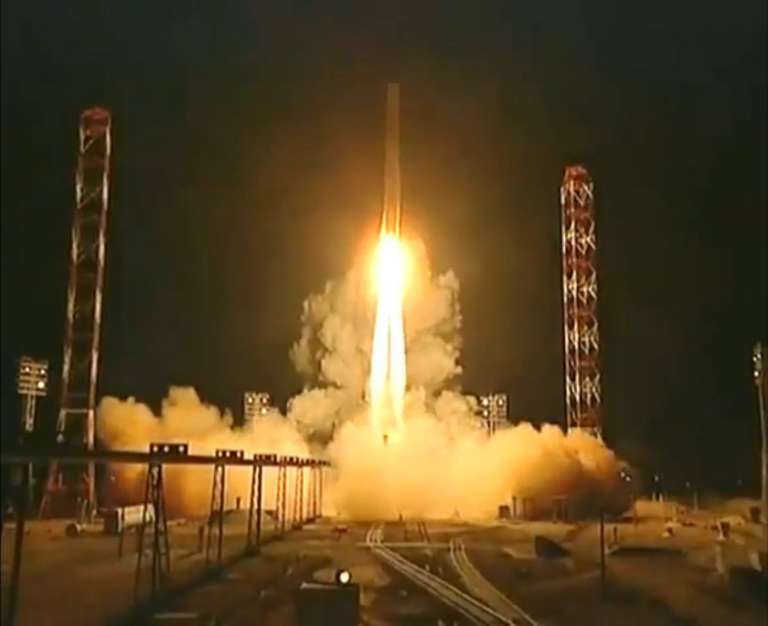Emily Lakdawalla • Dec 09, 2011
Phobos-Grunt: all but over, a letter from IKI
If you're a member of The Planetary Society, you have already received parts of the letter that I'm copying below, in an email note from Bruce Betts, Director of Projects. It takes the financial support of thousands of members for us to put our projects into action, so it hurts, a lot, when those projects fail. Failure is a part of space exploration -- pushing the boundaries of our abilities and knowledge always carries risk -- but that doesn't make it smart any less.
The letter was sent by Lev Zelenyi, director of the Space Research Institute (IKI), and forwarded more widely (at Zelenyi's request) by Alexander Zakharov. It was addressed "to the participants of the Phobos-Soil project" and "to the participants of the Phobos-Soil spacecraft tracking."
December 8, 2011
Dear Colleagues,
As you may already know, the launch of the Phobos-Soil spacecraft was a failure. On November 8, 2011 the spacecraft was put into the near Earth orbit, however, the booster did not turn on, and, therefore, the spacecraft did not manage to change this initial orbit and transfer to the interplanetary trajectory. The reason of this failure has not been determined yet.
Immediately after this unpredictable event all forces of the mission control team were concentrated in order to attempt to establish communication with the spacecraft. Several foreign organizations, in particular, ESOC-ESA, DSN-JPL-NASA, NORAD-STRATCOM, numerous amateur observers tracked the spacecraft to establish communication with it and determine parameters of the orbit, its orientation and attitude. However, despite people being at work 24 / 7 since the launch, all these attempts have not yield any satisfactory results. We are grateful to our foreign colleagues, who provided us with every list of information about the spacecraft which was crucial at the time.
Currently, the spacecraft is rotating [tumbling] at the near Earth orbit, lowering every day, and we expect that it is to entry the atmosphere in several weeks. Lavochkin Association specialists will continue their attempts to establish connection with the spacecraft and send commands until the very end of its existence. We are working nevertheless on the issue of re-entry and probability of where and which fragments may hit the ground (if any). There is a sensitive matter that one of the scientific instruments (Messbauer spectrometer) contains radioactive material Co-57. However, the amount of Co-57 is about few (less than 10) micrograms, so that, according to our evaluations, no significant problems are is anticipated.
At present, the next steps of the Russian space science program on the Solar system exploration are being discussed. In accordance with the current plans, the next missions are Luna-Glob and Luna-Resource. As another possible additional step, at the moment ROSCOSMOS, ESA and NASA are discussing the collaboration on the ExoMars and Russian Mars-NET missions. Moreover, the Russian Academy of Sciences would like to prepare a new mission to Phobos. However, no decision has not been taken yet.
We would like to express our deep gratitude to You and all the scientists and specialists for collaboration on the Phobos-Soil Mission, preparation of scientific instruments and provision of ground support. We are deeply sorry about the failure of the Phobos-Soil Mission. We hope in future to continue our collaboration on space science projects.
Academician Lev Zelenyi
Director, Space Research Institute
Chair, Solar system exploration Board
The Russian Academy of SciencesP.S. Please, convey this letter to members of your team. Thank you.

Support our core enterprises
Your support powers our mission to explore worlds, find life, and defend Earth. You make all the difference when you make a gift. Give today!
Donate

 Explore Worlds
Explore Worlds Find Life
Find Life Defend Earth
Defend Earth

